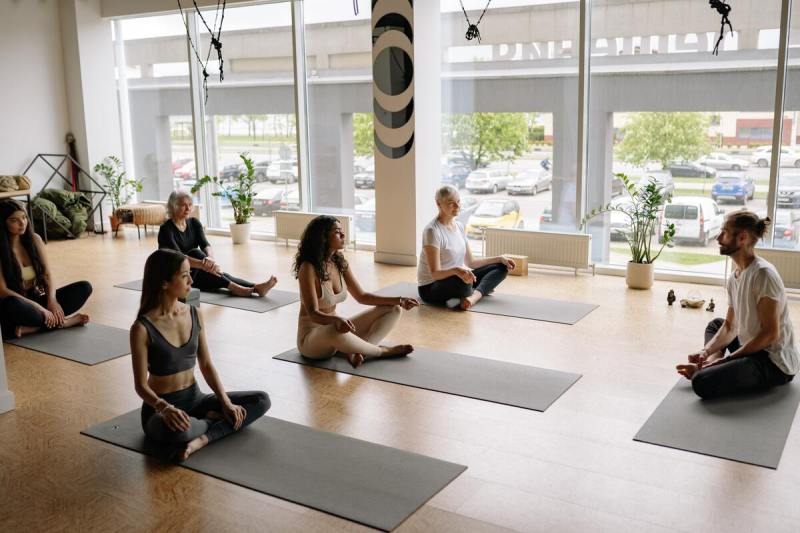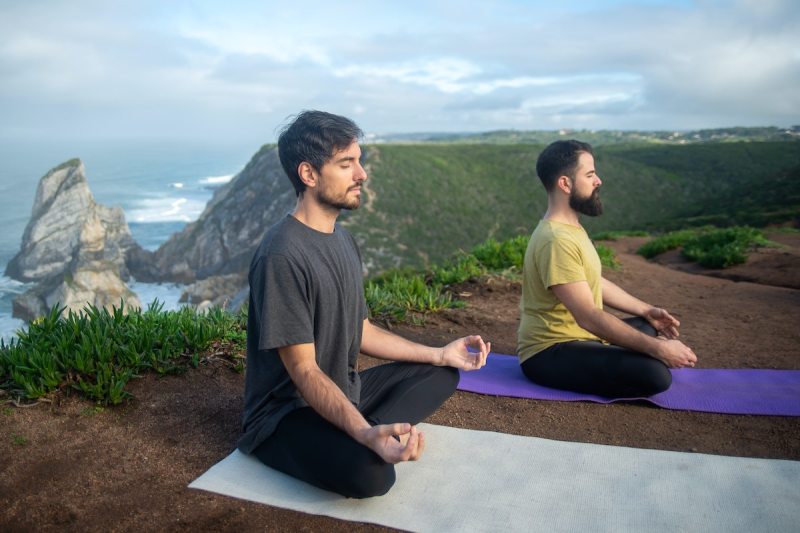
In the hustle and bustle of our busy everyday lives, it’s easy to neglect focusing on our mental health. Yet, focusing on maintaining good mental health is essential for living a happy and healthy life and helping us to achieve our full potential. Practicing yoga as part of your health and wellness routine is a great way to slow down and calm your mind.
There are several benefits of yoga for mental health, many of which are supported strongly in medical research. Yoga offers many great physical benefits for our bodies, such as increased flexibility and strength. But the mental health benefits of yoga are equally powerful — even if you can’t see them.
On the fence about starting yoga? Consider these powerful and surprising mental health benefits of yoga, such as reduced stress, less anxiety, and improved mood.

Improving your mood
In general, many types of exercise can help provide a mood boost, releasing hormones known as endorphins during exercise. Endorphins are often referred to as “feel-good chemicals” since they have been known to boost mood. However, yoga takes mood-boosting to a whole new level. Research has shown that practicing yoga can elevate another chemical in the brain known as gamma-aminobutyric acid (GABA).
According to a review of medical studies by Harvard Medical School, researchers concluded that yoga also helps reduce the hormones associated with stress, such as cortisol. This means practicing yoga can leave you happier and in an overall better mood.
Indirectly, practicing yoga can also improve your mood by reducing the pain and discomfort associated with certain conditions. Since physical and mental health are so interconnected, it’s easy to see how pain and discomfort can put a serious damper on your mood. If you struggle with chronic neck or back pain, yoga may be useful to alleviate pain and discomfort. Before starting, be sure to look into the best types of yoga poses for back pain, such as the cat-cow position.

Decreasing anxiety
Anxiety can take a serious toll on our mental health, making it difficult to function and enjoy life to the fullest. Practicing yoga can provide a calming and soothing atmosphere, helping to provide a sense of calm during periods of anxiousness. There are many types of yoga to explore, too, which can give you the opportunity to find a unique form of yoga that brings you a sense of peace. Some of the best types of yoga for decreasing anxiety are yin yoga and restorative yoga.
The medical research also supports the idea that yoga can be effective as part of a holistic treatment plan for anxiety. In a study headed by NYU Langone Health, researchers found that yoga had a long-lasting ability to reduce anxiety.

Creating better mental clarity and brain function
One of the lesser-known benefits of yoga is the ability to improve mental clarity and sharpen your brain function. Research studies that have used MRI scans have found that people who regularly do yoga had significant brain changes compared to those who did not. MRI scans showed a thicker cerebral cortex and hippocampus, two brain structures that are important for memory, learning, and thinking.
Adding yoga to your health and wellness routine can help provide enhanced mental clarity, which can help you at work or school. Even for busy working professionals, a few simple yoga poses at home can go a long way to improving your mental health.
Not only can yoga be powerful for brain function, but it also holds the potential to help fight against cognitive decline associated with aging. For this reason, yoga is popular for preventing dementia and cognitive skills. Research suggests yoga could help mitigate the shrinkage that can happen in the brain as we age.

Supporting post-traumatic stress disorder symptoms
The symptoms of post-traumatic stress disorder (PTSD) can be challenging to live with, causing ongoing negative emotions, heightened anxiety, and other symptoms that can often be debilitating. For people with this condition, adding yoga might be worthwhile.
Some studies have found that adding yoga to a treatment plan could help produce a sense of calm, activating the parasympathetic nervous system and helping to improve symptoms. Trauma-informed yoga is a great option for those with PTSD, differing from traditional yoga, in that it creates a safer space.

Improving sleep quality
High-quality sleep is so important for our overall health and wellness. That’s why many people turn to practicing yoga in their self-care routine, which can help support a good night’s sleep. Since yoga can help reduce stress, this directly impacts sleep quality by reducing the negative hormones that can impact our sleep quality.
Yoga is powerful for relaxing the nervous system, too, which can help get you ready to get to bed. When our bodies are stressed, we go into a “fight or flight” mode, which can make falling asleep and staying asleep especially challenging.
Specific yoga poses, such as the reclined butterfly, corpse pose, or child’s pose, may be especially helpful for calming the body before sleep. Bedtime yoga has also been shown to support healthy weight loss, as quality sleep is important for weight management.



